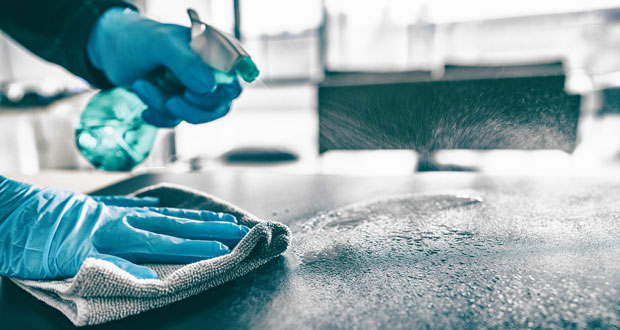 By Jonathan Withey, Director of ESG and Transformation at sustainability certification company, Planet Mark
By Jonathan Withey, Director of ESG and Transformation at sustainability certification company, Planet Mark
For many sectors, sustainability has shifted from a peripheral concern to a central mandate for securing growth and customer engagement. The cleaning sector is no exception. Customers are no longer content with mere cleanliness; they now demand that cleaning services and products be delivered with a true commitment to sustainability.
We wanted to dig into this trend to understand how companies in the sector are meeting this demand and what others can learn on their own sustainability journeys. We hosted an expert roundtable with seven cleaning companies and suppliers including Regular Cleaning, City West Support Services, DOC Cleaning, NuServe, Property Support Services UK, City & Essex, and Wessex Cleaning. This is what we found.
Costs and opportunities
In the midst of a cost-of-living crisis, organisations and consumers alike are striving to minimise costs. Delivering quality and safety at the right cost while using less harmful chemicals isn’t easy, but it should remain a firm priority for any brand looking to transition to more sustainable practices. Making the move early may seem costly but returns from initial investments will be enjoyed over time, especially as regulation and consumer demands continue to make environmentally friendly practices non-negotiable. Brands should also view meeting prevailing consumer demands as a long-term opportunity for real business growth. In this sense, sustainability can coexist, and even drive, financial growth.
Purchasing the right products
Finding more sustainable cleaning products that maintain quality and efficiency is vital. Products have traditionally contained various chemicals that can be harmful to the environment and marine life. However, the industry is slowly moving towards chemical-free alternatives that use natural ingredients, which are biodegradable and non-toxic. Cleaning brands are also increasingly embracing products designed to reduce water intensity, helping to conserve water resources. This in turn reduces a company’s carbon footprint while yielding further cost savings.
Plastic gloves
Whilst it may sound like a small issue, the excessive use of plastic gloves risks eating into company revenues. In turn, plastic glove waste also contributes to the ever-increasing pile of plastic waste that must be tackled nationally and globally. There is a need for wider conversations between companies in the industry so that more effective solutions can be developed and uniformly deployed to tackle single-use plastic. Rewashed, reusable gloves and PSA certification could play a big part in the move towards net zero for cleaning brands. Companies need to talk with each other to figure out how these solutions can be effectively adopted.
Water usage
Water usage also remains a significant barrier to securing strong environmental credentials. It was agreed that companies should pursue multifaceted strategies that include educating cleaners on water-saving techniques, adopting new automated technologies to monitor and reduce carbon emissions from water usage, and engaging in charitable water donations to bolster social value. Moreover, brands should gather comprehensive data on water usage from manufacturers and the rest of their production chain to create a clearer picture of their environmental impact.
Data
Data collection, however, should not stop at water. To foster meaningful change, organisations must also actively collect data on emissions throughout their supply chain. Currently, many cleaning manufacturers do not track data on CO2 emissions, which often makes claims of environmentally conscious practices unsubstantiated and exposes them to potential greenwashing criticism. Cleaning brands must therefore challenge manufacturers with detailed surveys to ensure that they are both held accountable and have the vital statistics needed to understand climate impacts.
Communicating positive environmental changes
Transparent communication about environmental efforts is crucial for brands, despite the challenge of unclear product credentials. Engaging customers is vital for informing a successful sustainability strategy ensuring the priorities are understood and expectations are met. Employee education on product usage, dosage, and scheduling is also key to unlocking environmental efficiency. Leveraging sustainability certifications will also help effectively convey a brand’s sustainability efforts and the broader financial and societal benefits to both customers and employees.
In summary…
This roundtable was crucial in uncovering the challenges and opportunities that the cleaning industry faces when it comes to sustainability. In amongst the number of tips, tricks and trends that are important for companies to be aware of, a consistent theme was the need for communication and collaboration between companies. Through this, the industry can begin aligning and uncovering solutions while minimising the costs of deploying solutions at scale and adopting them in their offerings.
Ultimately, the cleaning industry currently faces a big decision – continue as usual and risk falling out of step with regulatory and consumer trends or start adopting sustainable practices today to be prepared for growth tomorrow. While the former may seem convenient, it will not be feasible in the long-term.





